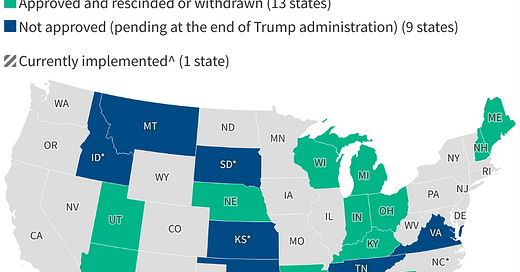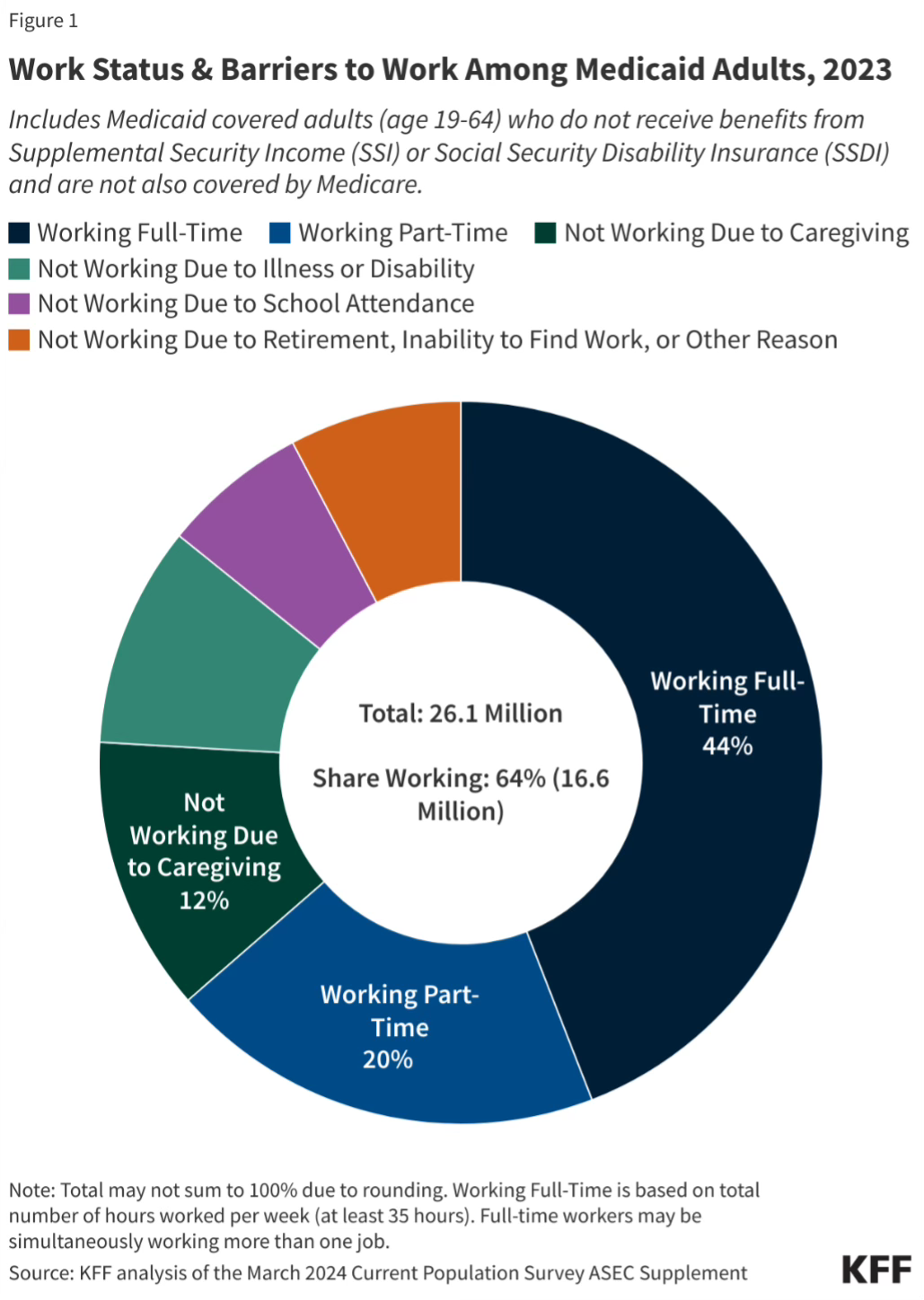Medicaid Work Requirements: A Misguided Way to Limit Care
36 Million Americans Could Lose Access to Basic Healthcare
The proposal of creating work requirements for Medicaid enrollees is certainly not new, but it currently has very concerning traction across states as well as at the federal level. The Center for Budget Policies and Priorities estimates as many as 36 million people would be at risk of losing their access to care if this policy is adopted nationwide.
Through Section 1115 waivers, the Centers for Medicare and Medicaid Services (CMS), under the previous Trump Administration, allow states to put in place policies to allow Medicaid work requirements; to date several states have been applied for or been approved for this waiver. One state – Arkansas – put this into practice from 2018 to 2019. The Kaiser Family Foundation estimated nearly 18,000 people lost coverage immediately in 2018 in Arkansas.
The House Republicans continue to entertain this policy as a way to cut federal Medicaid spending, but at what cost to states and health systems. The Affordable Care Act (ACA) achieved historic levels of reducing the number of uninsured, and creating a new arbitrary hurdle for vulnerable populations is incredibly short-sighted.
When the House passed policy in 2023, the Congressional Budget Office (CBO) estimated that so-called “community engagement” requirements could impact approximately 15 million people unless they apply for and qualify for an exemption and 1.5 million people would lose their eligibility for coverage. In total, 40 percent of people would lose their health benefits.
Medicaid work requirement policies seek to fix a problem that doesn’t exist, to the detriment of low-income Americans seeking to remain healthy while providing for their families. Over half of Medicaid enrollees are already working full- and part-time jobs that likely don’t offer health benefits and don’t pay enough to afford private insurance.
When American families are struggling to make ends meet and health care costs remain one of the biggest budget challenges at the kitchen table, creating an addition bureaucratic barrier to access care falls short of goals in building a strong economy and healthy population.
SOUND OFF
Does your family depend on Medicaid for your healthcare? Tell us about it. Email: podcast@onecountryproject.com and your feedback could be on an upcoming episode of The Hot Dish.






